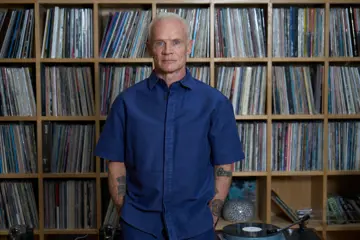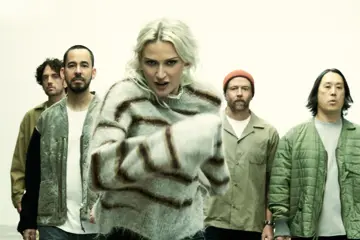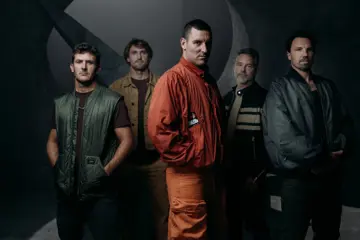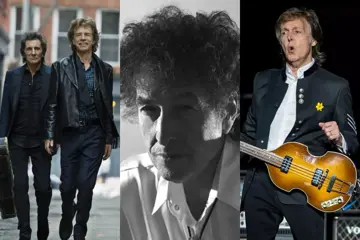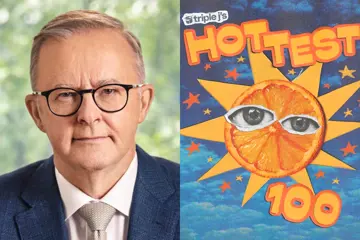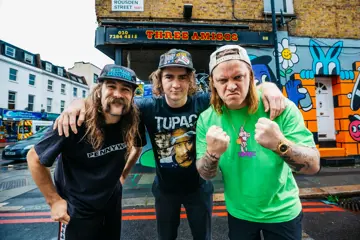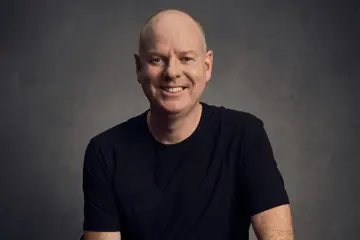After a sold out performance alongside Missy Higgins and Emma Louise at Melbourne's Palais Theatre, the spirits in the Gurrumul camp went somewhat sour when a taxi hailed by one of the artist's managers refused to allow the singer in the cab, allegedly on the basis of his race.
Skinnyfish Music director Mark Grose, who hailed the cab for Gurrumul, spoke to theMusic.com.au about the incident today.
“After a fantastic gig it was a real downer for everyone,” he says. “Well, everyone except for Gurrumul who just laughed it off and said 'oh well'.
“For Gurrumul and for all indigenous artists and all indigenous people, it's part of their everyday life and they have this armour for it. It's not part of my everyday life and I was furious last night.
“The reality is, you ring up any aboriginal person in Australia today and I'll bet they have a similar story. It's not an isolated incident; aboriginal people face it every day of their lives.”
Another Skinnyfish Music act B2M said that they experienced exactly the same treatment in Melbourne yesterday as well.
“We've got another band down here, B2M, who are in the recording studio. Michael [Hohnen – fellow Skinnyfish director] rang them to talk about something and he started to explain this taxi thing and Greg [Orsto], who's the senior guy in the band, said 'oh, that happened to me yesterday in Melbourne. I took the guy's number.'.”
Don't miss a beat with our FREE daily newsletter
National media has picked up the story with gusto since Grose decided to take the incident public, posting a Facebook status about it this morning. He says the decision to bring it out into the public eye was not a difficult one.
“I just think, if people don't bring it out into the public, then it just continues to happen,” he says. “At least by talking about it, hopefully we can all be a bit more on guard about it and speak up and keep the guys who have those sorts of views a little bit under check. Let them know you can't just make a judgement about someone presumably based on race and just get away with it.
“For someone like Gurrumul who's not able to defend himself in that sort of situation… a blind indigenous artist being left in the middle of the street because a taxi driver doesn't like what he looks like – that's outrageous.
“I made the call this morning and I just wanted to express publically what went on and it's actually created quite a storm, so in some sense I feel vindicated that it's out there in the public and people can talk about it and we can try and stamp out a bit more discrimination.”
While Grose did not identify the number of the taxi, nor the company it belongs to, he says that he hopes the companies will still be able to narrow down who the driver was.
“I'm gonna lodge a formal complaint, but I didn't get his number or anything like that, so everyone keeps telling me it's difficult,” he says. “But I think if the taxi companies got together and said 'who was in St Kilda at 10.30 last night I think they could nail it down to about 20 people, it's not rocket science I don't think.”
Ideally, Grose would like to be able to speak with the driver and convince him that he made a mistake.
“It'd be nice to sit down with that taxi driver and ask what he was thinking. While it was a bad thing to do, it'd be nice to be able to convince him that he made a mistake and that he wasn't dealing with some monster, he was dealing with a real human being who's got feelings and is loved by a lot of people in Australia.”
The incident is scarily reminiscent of the treatment Mandawuy Yunupingu – frontman of recent ARIA Hall of Fame inductees Yothu Yindi, of which Gurrumul is also a member – received at a St Kilda bar 20 years ago. Mandawuy was refused service at the Catani bar in March of 1992, a manager at the time saying, “There is a big heroin and booze problem concerning Aborigines here in St Kilda. If these Aborigines saw one of their own kind in here, they would come in, booze, shoot up heroin and cause all sorts of trouble.”

